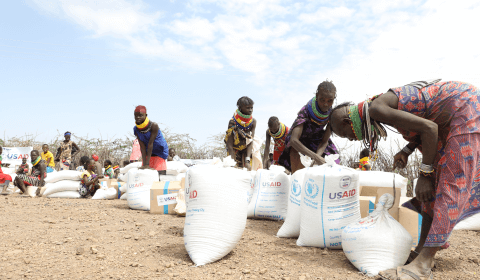A team of scientists troubled by the sudden increases in the frequency and severity of climate-related disasters has warned that human activity is pushing our planetary systems into dangerous instability.
A new report has warned that 20 of 35 planetary vital signs are at ‘record extremes’ and that life on Earth is in peril.
As it reveals, the concentration of carbon dioxide in our atmosphere has soared, extreme heatwaves continue to be more frequent, sea ice levels in Antarctica are at an all-time low, the oceans are the warmest they’ve ever been, and the amount of trees lost to wildfires in recent years is incomprehensible.
The international team of scientists that conducted the analysis are concerned that these factors place us closer to a dangerous tipping point and cite human activity and our failure to tackle the climate crisis as the driving force behind them.
‘Humanity is failing, to put it bluntly, says ecologist, William Ripple. ‘Rather than cutting greenhouse gas emissions, we’re increasing them. So we’re not doing well right now.’
Published in the journal BioScience, the findings state that 2023 has already witnessed 38 days with global average temperatures of more than 1.5 degrees above pre-industrial levels.

The highest monthly surface temperature ever recorded was in July and was probably the hottest the planet has been in 100,000 years.
The analysis also noted a steep increase in the frequency and severity of climate-related disasters, such as severe flooding in China and India, extreme heatwaves in the US and an exceptionally intense Mediterranean storm led to the deaths of thousands of people in Libya.





















